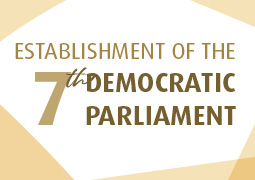
Participating in the debate on President Cyril Ramaphosa’s Opening of Parliament Address, Mr Nqabayomzi Nkwankwa of the United Democratic Movement in the Government of National Unity said Parliament needs to hold government departments accountable where there has been no alignment between the National Development Plan and their annual performance plans.
Apart from that, he said South Africans are faced with a cost-of-living crisis: of rocketing food, fuel prices and interest rate hike which erode people’s disposal income. Mr Nkwankwa said research has shown that the annual cost of a basket of food has increased by 64% from 2019 to 2023. Meanwhile, the 2022 Stats SA General Survey has shown that social grant has become the second source of income for people living in poverty.
“The R350 social grants fall short of the inflation adjustment of national food poverty line, which stands at R760 per month. Which shows that there’s a need for the introduction of the basic income grant for South African households,” Mr Nkwankwa said.
Mr Songezo Zibi of Rise Mzansi said there is little disagreement with the President regarding the matters needing urgent attention. “But it’s also true that we need a new language that reflects a new attitude on the same issues that are the symptoms of our social ills,” he said.
For instance: “We are a society in which civil servants are living in fear of being killed. Such as Adv Nude, who works for SARS and who was critically wounded when she was shot at in KwaZulu-Natal in broad daylight. This sends a message that our state is weak and is not the centre of our democratic power as it ought to be,” Mr Zibi said.
“We, as a nation, we have also become numb to the inhumane conditions that South Africans are borne in. Of South Africans who have lost hope, die poor and never to see the promised land. This is a profound crisis,” Mr Zibi said.
Mr Mmusi Maimane of Build One South Africa said the President’s speech defined the priorities we so desperately need but his party believes the past 30 years can teach the government useful lessons for the years to come.
One lesson learnt from the previous 30 years is that: “When we prioritise, we must prioritise that which we can deliver. But currently, our priorities are too much. I urge that we bring our priorities down and give South Africans singular and focused priorities that we can achieve collectively.”
Mr Maimane then spoke about what the lessons that can be learnt from the effects of state corruption, the VBS scandal and the Steinhof debacle. “We urge that all acts of corruption should be arrested. And we urge you, Mr President, that instead of funding VIP protection for state officials, lets fund the National Prosecution Agency and the Special Investigation Unit to pursue wrong doers.
Mr Maimane also called for the income grant to be converted into a basic income grant so that it can be budgeted for in the medium term.
Mr Vuyowethu Zungula of the African Transformation Movement said the truth is that South Africa is in a crisis that could lead it to be a failed state. “At the core of this crisis is that the democratic project of 1994 didn’t erode the systemic racial and economic structures of apartheid. As a result, the economy and wealth of this country is still in the hands of few white families, while the majority of South Africans don’t know where their next meal will come from,” Mr Zungula said.
He added: “We know of many political leaders who are co-opted by this system. Who do not serve the interest of the poor but are there to ensure that the system stays the same. While they claim to be the servants of the people, they oppose the very transformation aimed at benefiting the previously marginalised citizens of our country. Thirty years on, the system is not working nor is it sustainable.
“We now need a government that will drive fundamental, not cosmetic, changes to the economy to address the triple challenges of poverty, unemployment and inequality,” he said. He also called for South Africa’s land and the mineral wealth to be returned to the people.
In addition, Mr Zungula said, if the economy is to grow, the government must promote local production to ensure that South Africans consume what they produce and produce what they consume.
Abel Mputing
22 July 2024

